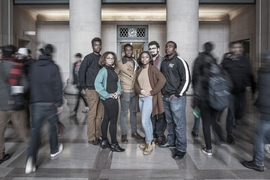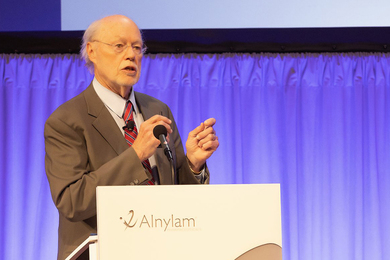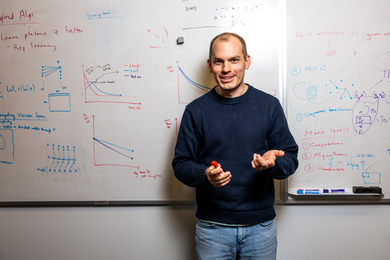In December 2015, student leaders from the Black Students’ Union (BSU) and the Black Graduate Student Association (BGSA) presented MIT’s senior administration with recommendations for making the Institute a more welcoming and inclusive place for all members of its community. The Academic Council, chaired by President L. Rafael Reif, is partnering with the students to consider all the recommendations and move forward with steps to address them.
Those changes that can be implemented soon will be in place within a matter of months; others will take more time. A dedicated Academic Council working group, convened by Vice President Kirk Kolenbrander and consisting of students, faculty, and senior officers, will share a public progress report around the time of spring break.
The report will outline the actions being taken in the shorter term, including enhancements to orientation for incoming students and the recruitment of a specialized mental health counselor, according to Kolenbrander. For the longer-term goals, the working group will describe its plan for moving forward.
The process “has been very collaborative, very productive, and very strategic in terms of thinking of cooperative ways that we can best meet the needs of students,” says DiOnetta Jones Crayton, associate dean for undergraduate education and director of the Office of Minority Education. Crayton is a member of a staff group Kolenbrander convened in the fall to advance the Institute’s partnership with a number of student groups working on diversity and inclusion issues.
“The opportunity to collaboratively work toward creative solutions feels more like a group effort than a negotiation. I am proud that MIT can put a group like this together to tackle systematic issues swiftly but delicately,” says junior Rasheed Auguste, co-chair of the BSU and a participant in the Academic Council working group.
Both sets of student recommendations, one focusing on the undergraduate experience, the other on graduate students, originated with a November conversation between the student leaders and President Reif, who reached out to see how the students were feeling in the wake of racially charged incidents taking place at the time on other campuses.
The administration has also encouraged other groups at MIT to make their own suggestions and has received “well over 80 different recommendations,” according to Kolenbrander. All of the suggestions have several “deep themes” in common, he says, and to keep the task manageable, the working group is focusing now on the recommendations from the BSU and BGSA while also laying a path for considering all of the others. “All constituencies have a voice and need to be engaged,” Kolenbrander says.
One of the BSU recommendations, namely to reaffirm MIT’s commitment to accessibility and affordability by increasing financial aid, has already been addressed: MIT announced on March 4 that the Institute’s undergraduate financial aid budget for 2016-17 will increase by 10.4 percent, a change that will result in more generous MIT scholarships for nearly all students who receive financial aid.
Other advances are very close to finalization. Undergraduate orientation in 2016 will include small-group conversations on diversity, facilitated by trained faculty and staff. And discussions are underway to make diversity training a component of the activities for incoming graduate students.
Leadership at MIT Medical is working to recruit a specialist with expertise in race-based traumatic stress and other psychological issues affecting under-represented minorities on campus.
An analysis is nearing completion that will capture data on undergraduate retention rate and flow within departments. This will be accompanied by a plan for data release practices, in order to ensure student privacy. Additionally, Institutional Research is working with the students on questions to pilot in the upcoming senior survey.
Responding to the students’ call in December, every member of Academic Council has agreed to participate in unconscious-bias training this semester. Additionally, this week Institute Community and Equity Officer Ed Bertschinger is hosting the first in a series of unconscious bias trainings that all faculty, students, and staff are invited to take part in.
Responses to other recommendations, including those that require action by every department, are still in progress. Kolenbrander is confident that the ultimate outcomes will reflect the student recommendations in spirit, even if the steps taken by each department are not identical. “We can have conversations that lead us toward an articulation of our shared values, and we can get everyone to sign off on that. Those conversations are going on now,” Kolenbrander says.











